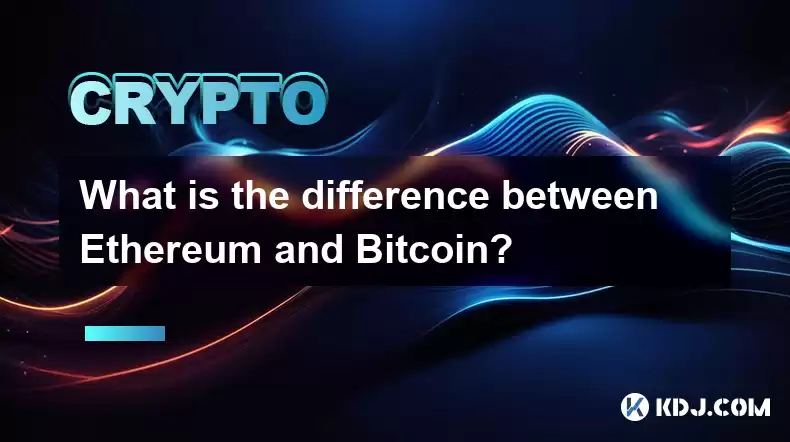-
 Bitcoin
Bitcoin $115100
1.27% -
 Ethereum
Ethereum $3675
2.71% -
 XRP
XRP $2.995
1.45% -
 Tether USDt
Tether USDt $1.000
0.02% -
 BNB
BNB $769.8
2.64% -
 Solana
Solana $168.0
3.25% -
 USDC
USDC $0.9999
-0.01% -
 TRON
TRON $0.3371
1.48% -
 Dogecoin
Dogecoin $0.2051
3.36% -
 Cardano
Cardano $0.7394
2.30% -
 Hyperliquid
Hyperliquid $38.15
0.42% -
 Stellar
Stellar $0.3966
-0.36% -
 Sui
Sui $3.486
2.93% -
 Chainlink
Chainlink $16.72
2.52% -
 Bitcoin Cash
Bitcoin Cash $568.0
4.36% -
 Hedera
Hedera $0.2440
2.59% -
 Ethena USDe
Ethena USDe $1.001
0.04% -
 Avalanche
Avalanche $22.16
2.06% -
 Litecoin
Litecoin $119.1
-0.73% -
 UNUS SED LEO
UNUS SED LEO $8.991
0.04% -
 Toncoin
Toncoin $3.232
-0.39% -
 Shiba Inu
Shiba Inu $0.00001233
2.82% -
 Uniswap
Uniswap $9.717
2.53% -
 Polkadot
Polkadot $3.664
1.85% -
 Dai
Dai $1.000
0.01% -
 Monero
Monero $281.2
-3.89% -
 Bitget Token
Bitget Token $4.350
1.55% -
 Cronos
Cronos $0.1428
5.07% -
 Pepe
Pepe $0.00001050
3.68% -
 Aave
Aave $262.3
3.54%
What is the difference between Ethereum and Bitcoin?
While both Bitcoin and Ethereum employ blockchain technology, Ethereum's smart contract functionality provides a wider scope for application development, tokenization, and automation compared to Bitcoin's primary focus on secure financial transactions.
Feb 17, 2025 at 10:06 pm

Key Points:
- Ethereum is a decentralized, open-source blockchain platform that enables smart contracts and decentralized applications (dApps).
- Bitcoin is a decentralized, peer-to-peer digital currency primarily used as a store of value and medium of exchange.
- While both are blockchain-based technologies, Ethereum has broader functionality due to its smart contract capabilities, while Bitcoin focuses on secure and immutable financial transactions.
- Ethereum's native cryptocurrency is Ether (ETH), while Bitcoin's is Bitcoin (BTC).
Differences in Functionality:
1. Smart Contracts:
Ethereum enables smart contracts, which are self-executing agreements written in code and stored on the blockchain. Smart contracts automate transactions and enable decentralized applications (dApps) to operate independently.
2. Decentralized Applications (dApps):
Ethereum's smart contract functionality allows for the development and deployment of decentralized applications, such as decentralized finance (DeFi) protocols, non-fungible tokens (NFTs), and other distributed apps.
3. Tokenization:
Ethereum supports the creation of custom tokens, which can represent assets, securities, or rewards. This enables tokenization of physical and digital assets, facilitating new markets and use cases.
4. Network Speed:
Ethereum's transaction processing speed is relatively slower compared to Bitcoin, with transactions taking several minutes to complete. Bitcoin processes transactions more quickly, typically completing within a matter of seconds.
5. Scalability:
Ethereum's network is actively working on improving scalability to handle increasing transaction volume. Layer-2 solutions and sharding mechanisms are being developed to address scalability limitations.
Differences in Value:
1. Store of Value:
Bitcoin is widely recognized as a digital store of value and an alternative to traditional fiat currencies. Its limited supply, issuance schedule, and decentralized nature contribute to its perceived scarcity and value stability.
2. Medium of Exchange:
While Bitcoin can facilitate transactions, it is primarily used as a store of value rather than a widely adopted medium of exchange due to its price volatility and slower transaction speeds.
FAQs:
What advantages does Ethereum have over Bitcoin?
- Smart contract functionality
- Wider application in dApps, DeFi, and NFTs
- Tokenization capabilities
What advantages does Bitcoin have over Ethereum?
- Faster transaction speeds
- Proven track record as a store of value
- More widespread adoption as a medium of exchange
Disclaimer:info@kdj.com
The information provided is not trading advice. kdj.com does not assume any responsibility for any investments made based on the information provided in this article. Cryptocurrencies are highly volatile and it is highly recommended that you invest with caution after thorough research!
If you believe that the content used on this website infringes your copyright, please contact us immediately (info@kdj.com) and we will delete it promptly.
- BlockDAG, Litecoin, and Cardano: Charting the Course in Crypto's Dynamic Waters
- 2025-08-07 09:09:06
- Fireverse Token: Igniting a Musical Revolution in Web3
- 2025-08-07 08:27:45
- Ethereum, L2 Withdrawals, and Decentralization: A New Yorker's Take
- 2025-08-07 08:32:33
- Avalanche vs. Ruvi AI: Daily Sales Tell a Story of Crypto Disruption
- 2025-08-07 06:29:35
- DeSoc: The Crypto to Buy Now for a Decentralized Future (and Maybe 43x Gains!)
- 2025-08-07 06:50:16
- Arctic Pablo Coin: Riding the Meme Coin Wave with a Deflationary Twist
- 2025-08-07 07:18:13
Related knowledge

What is Chainlink (LINK)?
Jul 22,2025 at 02:14am
Understanding Chainlink (LINK): The Decentralized Oracle NetworkChainlink is a decentralized oracle network designed to bridge the gap between blockch...

What is Avalanche (AVAX)?
Jul 22,2025 at 08:35am
What is Avalanche (AVAX)?Avalanche (AVAX) is a decentralized, open-source blockchain platform designed to support high-performance decentralized appli...

What is Polkadot (DOT)?
Jul 19,2025 at 06:35pm
Understanding the Basics of Polkadot (DOT)Polkadot (DOT) is a multi-chain network protocol designed to enable different blockchains to transfer messag...

What is Litecoin (LTC)?
Jul 23,2025 at 11:35am
Overview of Litecoin (LTC)Litecoin (LTC) is a peer-to-peer cryptocurrency that was created in 2011 by Charlie Lee, a former Google engineer. It is oft...

What is Monero (XMR)?
Jul 21,2025 at 10:07am
What is Monero (XMR)?Monero (XMR) is a decentralized cryptocurrency designed to provide enhanced privacy and anonymity for its users. Unlike Bitcoin a...

How to add indicators to Ethereum chart on TradingView?
Jul 19,2025 at 07:15am
What Is an Ethereum Chart on TradingView?The Ethereum chart on TradingView is a visual representation of the price movement of Ethereum (ETH) over a s...

What is Chainlink (LINK)?
Jul 22,2025 at 02:14am
Understanding Chainlink (LINK): The Decentralized Oracle NetworkChainlink is a decentralized oracle network designed to bridge the gap between blockch...

What is Avalanche (AVAX)?
Jul 22,2025 at 08:35am
What is Avalanche (AVAX)?Avalanche (AVAX) is a decentralized, open-source blockchain platform designed to support high-performance decentralized appli...

What is Polkadot (DOT)?
Jul 19,2025 at 06:35pm
Understanding the Basics of Polkadot (DOT)Polkadot (DOT) is a multi-chain network protocol designed to enable different blockchains to transfer messag...

What is Litecoin (LTC)?
Jul 23,2025 at 11:35am
Overview of Litecoin (LTC)Litecoin (LTC) is a peer-to-peer cryptocurrency that was created in 2011 by Charlie Lee, a former Google engineer. It is oft...

What is Monero (XMR)?
Jul 21,2025 at 10:07am
What is Monero (XMR)?Monero (XMR) is a decentralized cryptocurrency designed to provide enhanced privacy and anonymity for its users. Unlike Bitcoin a...

How to add indicators to Ethereum chart on TradingView?
Jul 19,2025 at 07:15am
What Is an Ethereum Chart on TradingView?The Ethereum chart on TradingView is a visual representation of the price movement of Ethereum (ETH) over a s...
See all articles

























































































